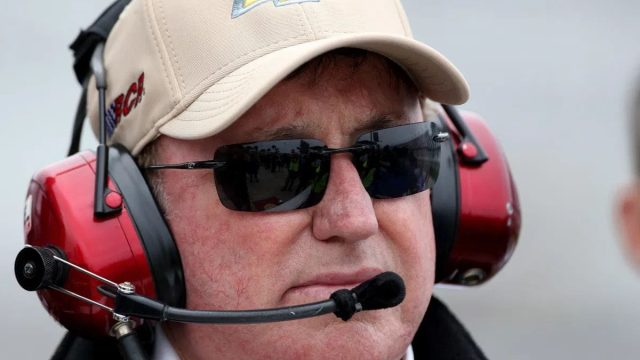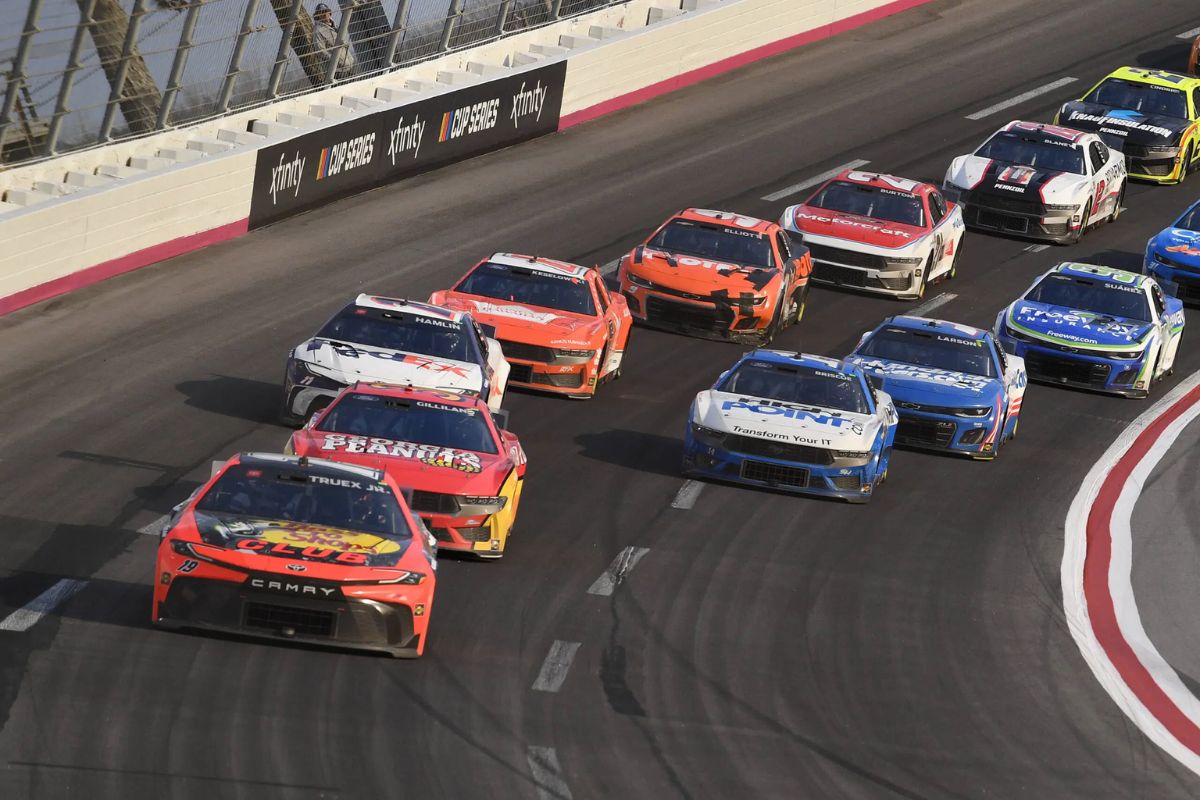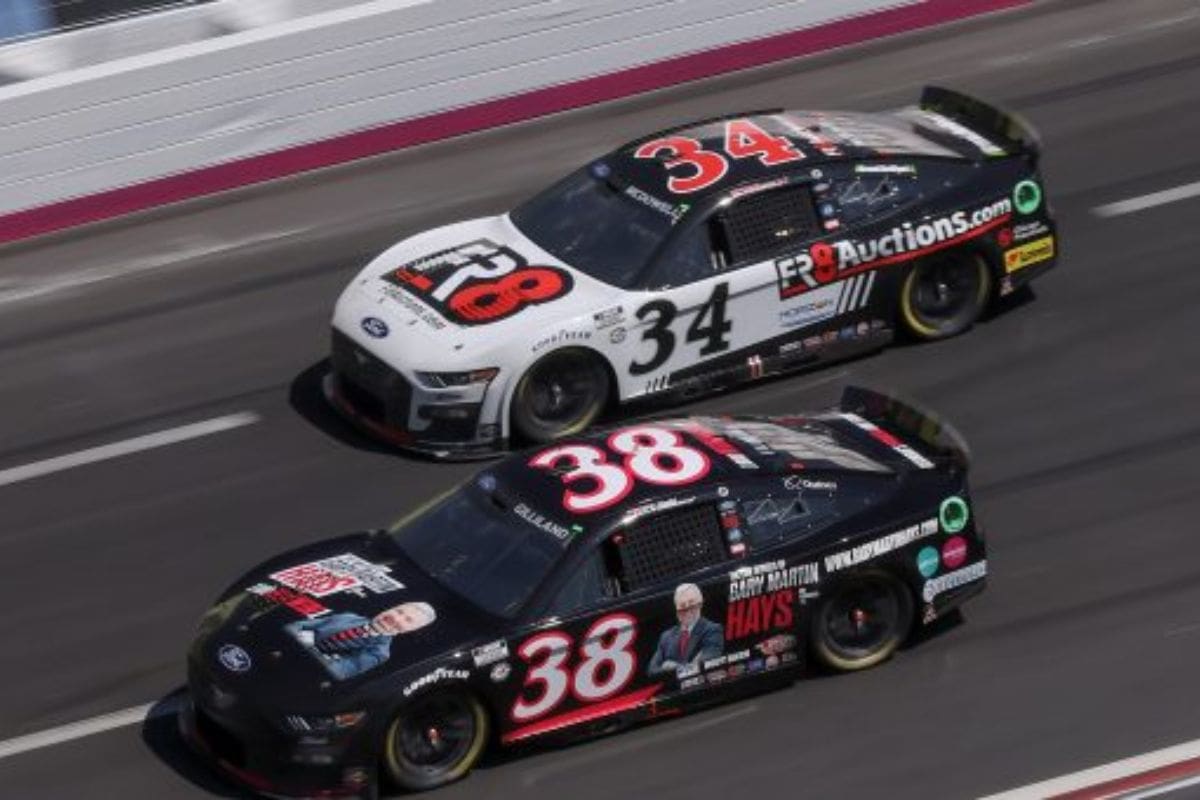Richard Childress Fight Highlights NASCAR’s Hidden Flaws: The recent disqualification of Austin Dillon has sparked a notable discourse surrounding the structural integrity of NASCAR’s governance, particularly through Richard Childress‘ appeal. This incident not only highlights the rigid enforcement of regulations by the National Motorsports Appeals Panel but also raises critical questions about transparency and fairness in decision-making processes. As Childress Racing seeks further review, it becomes evident that the current regulatory framework may unknowingly build mistrust among teams and drivers. What implications might this struggle for equitable treatment hold for the future of the sport?
Key Highlights
- Richard Childress Racing’s appeal reflects frustration over NASCAR’s rigid rule enforcement, highlighting perceived unfairness in the regulatory process.
- The delayed response to penalties raises concerns about NASCAR’s decision-making efficiency and stakeholder trust in governance.
- Austin Dillon’s stripped playoff eligibility underscores the impact of regulatory inconsistencies on drivers’ competitive standings and opportunities.
- The role of the Final Appeal Officer is critical for ensuring fairness, yet the binding nature of decisions limits further redress for teams.
- Calls for immediate penalties in racing highlight the need for NASCAR to enhance the integrity and transparency of its enforcement processes.
Austin Dillon’s Victory and Penalties
How can a win turn into a loss in the world of NASCAR? Austin Dillon‘s success at Richmond Raceway serves as an emotional example. Securing his initial victory of the season should have been a moment of celebration; however, the circumstances surrounding that win reveal the complexities and potential pitfalls of competitive racing.
In the final lap, incidents involving prominent drivers Joey Logano and Denny Hamlin led to a series of repercussions that eclipsed Dillon’s accomplishment. NASCAR’s decision to strip Dillon of his playoff eligibility and impose a 25-point penalty emphasizes the delicate balance between competition and rule enforcement.
This action raises questions about the governing body’s consistency in applying regulations and the implications for drivers’ standings. While Dillon’s victory initially positioned him favorably within the championship framework, the subsequent penalties not only diminished its significance but also altered the course of his season.
The appeal process further highlights the challenges inherent in NASCAR’s regulatory environment. Dillon’s team, Richard Childress Racing, sought to contest the sanction but found their efforts rejected by the National Motorsports Appeals Panel.
This rejection illuminates the perceived lack of fairness and transparency in decision-making processes, potentially eroding trust among competitors and fans similarly.
Dillon’s bittersweet win presents how success in NASCAR is often contingent upon steering through a labyrinth of regulations and subjective interpretations, revealing deeper flaws within the sport’s governance that merit criticism and reform.
NASCAR’s Decision-Making Challenges
NASCAR faces considerable decision-making challenges that weaken its authority and efficiency, as evidenced by the aftermath of Austin Dillon’s victory at Richmond Raceway. The three-day delay in reaching a verdict following the controversial incidents highlights a major flaw in NASCAR‘s operational framework. This protracted timeline not only reflects indecision but also indicates a troubling reliance on external stakeholders, including car manufacturers, sponsors, and networks, to influence outcomes.
The adage “too many cooks spoil the broth” aptly captures the essence of NASCAR’s predicament. By seeking consensus from multiple parties, NASCAR compromises its autonomy, which diminishes its capacity to enforce on-track regulations decisively. This approach raises critical questions about the organization’s confidence in its own judgment.
When the governing body appears hesitant to assert its authority, it inadvertently opens the door for teams to exploit perceived weaknesses, as evidenced by Richard Childress Racing’s appeal of the eventual ruling.
This bureaucratic model not only delays timely resolutions but also fosters an environment where teams may feel emboldened to challenge decisions, further complicating an already intricate governance structure.
To reclaim its authority and restore credibility, NASCAR must streamline its decision-making processes, prioritizing speed and clarity over consensus. The organization must recognize that effective governance requires decisive leadership, especially in the high-stakes arena of professional motorsport, where perception often shapes reality.
Without swift and resolute actions, NASCAR risks perpetuating a cycle of uncertainty that can undermine both competitive integrity and stakeholder trust.
Criticism of NASCAR’s Process
Criticism of NASCAR’s decision-making process has intensified as stakeholders increasingly question the organization’s ability to act decisively during crucial moments. The lengthy delays in addressing on-track incidents have stirred discontent among drivers, teams, and fans similarly. YouTuber Eric Estepp articulates a common sentiment, emphasizing the need for NASCAR to adopt a more immediate approach to penalties. Estepp argues that the current process, which can extend over weeks, undermines the integrity of the sport and suggests that NASCAR lacks the necessary authority to enact timely decisions.
“I do believe the language in the rulebook must be adjusted so that next year NASCAR has the authority to make these calls at the track. We shouldn’t be waiting until Wednesday for a ruling. We shouldn’t be waiting until the following Wednesday for the appeal to be heard. We shouldn’t be waiting, who knows, another week, two weeks, for the final appeal. These kinds of calls should not be dragged out for weeks. If short track series can penalize drivers at the moment, NASCAR should be able to as well. I just think right now, they don’t have the authority. That should change going into next year.”-(eric)
Estepp’s assertion highlights a significant flaw in the operational framework of NASCAR. While collaboration among stakeholders is essential for elements such as marketing and scheduling, the autonomy of decision-making regarding on-track incidents must be prioritized.
Other racing series demonstrate the efficacy of immediate penalties, reinforcing the idea that NASCAR should not lag behind in this regard. The decision-making process must be fortified so that rulings can be made at the track, thereby enhancing accountability and maintaining competitive fairness.
In an era where instantaneous communication is the norm, the expectation for NASCAR to respond promptly is not merely a preference but a necessity. A more streamlined and autonomous approach to decision-making would not only restore faith among stakeholders but also boost the general integrity of the sport.
As NASCAR faces mounting questions, the call for reform in its decision-making process becomes increasingly urgent, signaling a critical moment for the organization to reclaim its authority in the competitive landscape.
Richard Childress Racing’s Next Steps
As Richard Childress Racing prepares to escalate their appeal to the Final Appeal Officer, the team’s dissatisfaction with the recent ruling highlights a vital moment in their season. The decision by the National Motorsports Appeals Panel to uphold NASCAR’s verdict has left the team feeling that their concerns regarding fairness and due process have not been adequately addressed.
The panel’s statement emphasizing the need for exemplary conduct among drivers, while justifying the suspension of Dillon’s spotter, points to a rigid adherence to rules that may overlook the subtleties of individual circumstances.
NEWS: Appeals Panel upholds penalty to No. 3 team from @RichmondRaceway, spotter Brandon Benesch suspension reduced to one race.https://t.co/spFyw8q4zY
— NASCAR (@NASCAR) August 21, 2024
Richard Childress Racing’s resolve to pursue further appeals emphasizes a broader concern within the sport regarding the consistency and transparency of disciplinary actions. The reduction of the suspension from three races to one, while a step in the right direction, has not fully relieved the team’s grievances.
Their commitment to appealing to the Final Appeal Officer suggests a tactical move to not only seek justice for their team but also to highlight what they perceive as systemic flaws within NASCAR’s governance.
Richard Childress Racing must prepare a robust case that not only states their specific grievances but also addresses the implications of NASCAR’s policies on competitive equity.
Their next steps will involve gathering evidence, rallying support from key stakeholders, and potentially influencing discussions on reforming NASCAR’s appeal processes.
This moment represents not just a fight for fairness for Childress Racing, but potentially an accelerator for broader change within the framework of NASCAR.
Final Appeal Officer’s Role
Steering through the complexities of NASCAR’s appeal process, the Final Appeal Officer serves a crucial function in adjudicating disputes surrounding rulings made by the National Motorsports Appeals Panel. This role is essential in maintaining the integrity of the sport while providing a mechanism for teams to challenge decisions that they believe are unjust.
Despite the reduction of Dillon’s spotter Brandon Benesch’s suspension from three races to just one, the team feels their appeal wasn’t fully respected and plans to escalate the matter to the Final Appeal Officer. The appeals panel, consisting of Tommy Wheeler, Tom DeLoach, and Kelly Housby, upheld the sanctioning body’s decision and released the following statement after announcing their ruling.
“NASCAR represents elite motorsports and, as such, its drivers are expected to demonstrate exemplary conduct if its series’ championships are to be validated. In this case, the ‘line’ was crossed.”-(nascar appeal officers statement)
According to the rulebook, Austin Dillon appears to have violated Sections 4.4.B and 12.3.2.1.B, which pertain to conduct and playoff eligibility. His spotter, Benesch, was also found guilty of breaching Sections 4.4.D and 10.1.A. Despite the slim chances of the Final Appeal Officer overturning the decision, Richard Childress Racing has decided to fight the ruling, reasoning they have little to lose at this point.
In the case of Richard Childress Racing, their decision to appeal indicates a commitment to contesting perceived injustices, despite the low probability of a favorable outcome.
“Richard Childress Racing is disappointed in the results of today’s hearing in front of the National Motorsports Appeals Panel. We respect the NASCAR appeals process, but we do not believe that today’s outcome reflects the facts presented. We plan to appeal the decision to the Final Appeal Officer.”-(rcr team statement)
With drivers like Austin Dillon and Kyle Busch facing dwindling chances for playoff qualification, their fight emphasizes the critical importance of fairness and transparency in NASCAR’s governance structures.
News in Brief: Richard Childress Fight Highlights NASCAR’s Hidden Flaws
The ongoing appeal by Richard Childress Racing highlights noteworthy governance issues within NASCAR, particularly regarding the enforcement of rules and decision-making transparency. The rigid processes employed by the National Motorsports Appeals Panel can undermine fairness and trust among teams, raising questions about the integrity of competition. This situation emphasizes the urgent need for a reevaluation of NASCAR’s regulatory framework to guarantee equitable treatment and clarity, ultimately fostering a more trustworthy environment for all participants in the sport.
ALSO READ: Richard Childress Radio Blunder Post-Austin Dillon’s Win: Fans Go Berserk!



